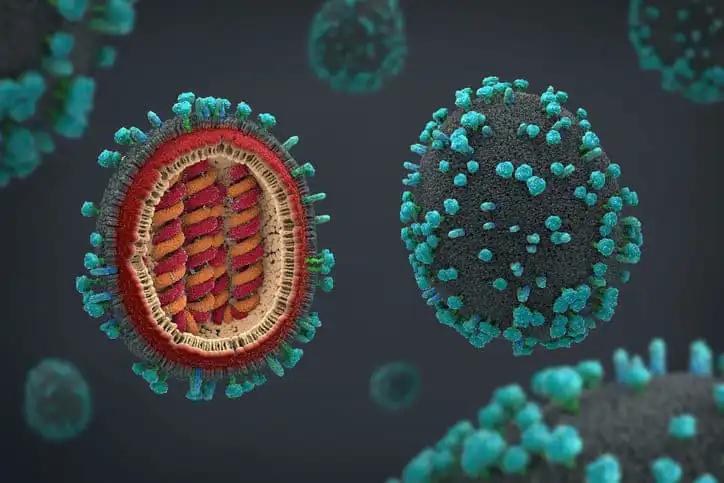KEY TAKEAWAYS
- The phase 3 ARASENS trial investigated the impact of disease volume and risk on the efficacy and safety of treatment in patients with metastatic hormone-sensitive prostate cancer (mHSPC).
- Based on disease volume and risk factors, mHSPC patients received darolutamide or placebo with androgen-deprivation therapy and docetaxel.
- Darolutamide improved overall survival in patients with high-volume, high-risk, low-risk, and low-volume diseases.
- Darolutamide also demonstrated benefits in time to castration-resistant prostate cancer and subsequent systemic therapy across all disease volume and risk subgroups.
The ARASENS trial investigated the impact of disease volume and risk factors on the effectiveness and safety of treatment. The study enrolled patients diagnosed with metastatic hormone-sensitive prostate cancer (mHSPC) and randomly allocated them to receive either darolutamide or a placebo. The treatment was administered in combination with androgen-deprivation therapy and docetaxel. Disease volume was categorized as high if patients had visceral metastases and/or four or more bone metastases, with at least one located outside the vertebral column/pelvis. High-risk disease was defined as having two or more risk factors, which included a Gleason score of eight or higher, three or more bone lesions, and measurable visceral metastases.
Out of 1,305 patients, high-volume disease was present in 1,005 individuals (77%), while 912 patients (70%) had high-risk disease. Analysis revealed that darolutamide administration led to increased overall survival (OS) compared to placebo in patients with high-volume disease (hazard ratio [HR] 0.69; 95% confidence interval [CI] 0.57 to 0.82), high-risk disease (HR 0.71; 95% CI 0.58 to 0.86), and low-risk disease (HR 0.62; 95% CI 0.42 to 0.90). Notably, even in the smaller low-volume subgroup, the data also indicated a potential survival benefit with darolutamide (HR 0.68; 95% CI 0.41 to 1.13). Moreover, darolutamide improved clinically relevant secondary endpoints, such as time to castration-resistant prostate cancer and subsequent systemic antineoplastic therapy, across all disease volume and risk subgroups. In the high-volume subgroup, 64.9% of darolutamide patients experienced Grade 3 or 4 adverse events (AEs), while the rate was 64.2% for placebo patients. In the low-volume subgroup, the rates were 70.1% for darolutamide patients and 61.1% for placebo patients. Most toxicities were associated with docetaxel amongst the most frequently observed AEs.
Intensifying treatment with darolutamide, androgen-deprivation therapy, and docetaxel improved overall survival (OS) in high-volume and high-risk/low-risk mHSPC patients. The adverse event (AE) profile in these subgroups was comparable to that of the overall population, indicating consistent findings.
Source: https://pubmed.ncbi.nlm.nih.gov/36795843/
Clinical Trial: https://clinicaltrials.gov/study/NCT02799602
Hussain M, Tombal B, Saad F, Fizazi K, Sternberg CN, Crawford ED, Shore N, Kopyltsov E, Kalebasty AR, Bögemann M, Ye D, Cruz F, Suzuki H, Kapur S, Srinivasan S, Verholen F, Kuss I, Joensuu H, Smith MR. Darolutamide Plus Androgen-Deprivation Therapy and Docetaxel in Metastatic Hormone-Sensitive Prostate Cancer by Disease Volume and Risk Subgroups in the Phase III ARASENS Trial. J Clin Oncol. 2023 Jul 10;41(20):3595-3607. doi: 10.1200/JCO.23.00041. Epub 2023 Feb 16. PMID: 36795843.



